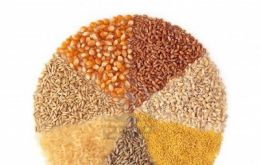MercoPress. South Atlantic News Agency
Stories for December 13th 2013
-
Friday, December 13th 2013 - 09:11 UTC
Ice loss pushing Antarctica side-wards half an inch per year, according to GPS recordings

Heavy ice loss in West Antarctica has weakened it mantle underneath, allowing the stronger East Antarctica mantle to push it around, according to Ohio State University researchers. The discovery was made after recording GPS measurements, which clearly showed that the West Antarctic bedrock is being pushed at an alarming rate of half an inch per year.
-
Friday, December 13th 2013 - 09:07 UTC
NASA study finds close links between climate and the ozone hole size variation

It turns out that the ozone hole may not be completely healed--at least according to new NASA data. Scientists have examined the inner workings of the ozone hole that forms annually over Antarctica and have found that declining chlorine in the stratosphere has not yet caused a recovery of the ozone hole.
-
Friday, December 13th 2013 - 09:04 UTC
Mexico breaks 75-year myth: opens energy sector to private and foreign investment

Mexico's Congress approved on Thursday early morning a historic energy reform aimed at luring foreign investment and ending the state's 75-year-old oil monopoly following a heated debate. After a marathon session that lasted nearly 24 hours, the lower house voted 353 to 134 for the legislation championed by President Enrique Peña Nieto, one day after it passed the Senate.
-
Friday, December 13th 2013 - 09:01 UTC
Congress and White House agree on budget bill which should end clashes

The US House of Representatives has approved a two-year federal budget bill in a strong showing of cross-party support, further avoiding the specter of another government shutdown. The measure, written by the Republican and Democratic heads of the House and Senate budget committees respectively, was approved by a 332-94 vote.
-
Friday, December 13th 2013 - 08:59 UTC
Abundance of cereals, 6% ahead of the 2011 record, says FAO latest forecast

FAO’s latest forecast for world cereal production in 2013 has been revised upward marginally (2 million tons) since November to a new high of almost 2 500 million tons (including rice in milled terms), 8.4% more than last year and some 6% above the previous record in 2011. The latest revision mostly reflects adjustments to maize output estimates in the United States, the Russian Federation and Ukraine, which had become firmer towards the completion of the harvests.
-
Friday, December 13th 2013 - 08:52 UTC
FAO food price index in November unchanged: dairy up 23% over a year ago

The FAO Food Price Index averaged 206.3 points in November 2013, almost unchanged from the revised value of 206.6 points in October, but 9.5 points (4.4%) below its November 2012 value. A sharp decline in sugar prices last month nearly offset the rise in oils. Cereals averaged slightly lower but meat and dairy values were stable.
-
Friday, December 13th 2013 - 08:47 UTC
Keeping up with inflation in Argentina: after calming police, who's next in the queue

Police protests and widespread looting in 19 of the 24 Argentine provinces has, in a few weeks, shattered expectations about the new cabinet of President Cristina Fernandez and a stabilization of the economy, since as can be anticipated government employees and unions will be demanding similar conditions as their blue uniformed colleagues to keep up to date with inflation, running at an annualized 26% according to the November reading.
